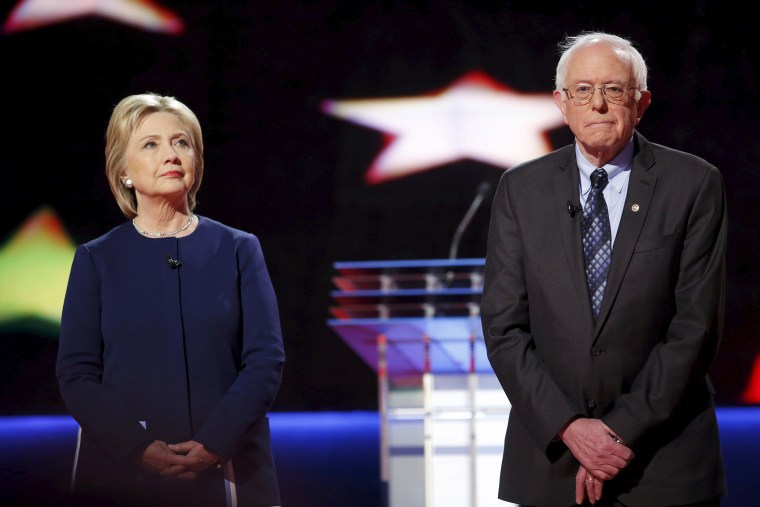Prior to the state convention, some Sanders supporters began an effort to shift the convention rules in a way that they viewed as more favorable to their candidate. One of those changes, the Las Vegas Sun reported, was a process for verifying voice votes; another took issue with the state party chairwoman, Roberta Lange, heading up the convention. Supporters at the event circulated petitions to the same end. The scene was set. The first report from the credentials committee on Saturday morning indicated that Clinton had a slight edge in delegates. Sanders fans voted against that report, per Jon Ralston, and then demanded a recount -- but this was simply a preliminary figure.... That was when the vote to approve the rules as written -- Roberta's Rules versus Robert's Rules, as some Sanders backers dubbed them -- was conducted by voice vote. The motion, seconded by a Sanders supporter, passed -- which is when the room, in Ralston's phrasing, "erupts."
Dems fear chaos at Nevada convention portends July mess
All of a sudden, those looking for convention unrest are more likely to find it Philadelphia than Cleveland.

On the surface, the results from the state Democratic convention in Nevada may not seem especially noteworthy. Hillary Clinton defeated Bernie Sanders in the state's caucuses in February, and her supporters prevailed at Saturday's party gathering where delegates to the national convention were chosen. None of this has much of an effect on the overall race.
At least, that's the way it may look on paper. When activists gathered in Las Vegas on Saturday, however, Sanders supporters hoped to take advantage of Nevada's complex process to give him the statewide edge in the delegate count, despite coming in second in February balloting.
The Washington Post published a good overview, explaining just how ugly the developments became.
Determining exactly who was in the right and who was in the wrong is surprisingly difficult. Sanders' supporters are absolutely convinced that the process was "rigged" to undermine the senator. Clinton supporters are equally convinced that they followed the rules and Sanders' backers are throwing a tantrum because they came up short. I wasn't there; I know little about the complex Nevada-based rules; and it's tough to tell from reading the local reports which side has the stronger case.
What's far clearer is how unruly the party gathering became. Nevada's Jon Ralston reported that the convention ended with security shutting down the event, followed by pro-Sanders activists rushing the stage, "yelling obscenities," and "throwing chairs."
That's obviously the kind of state convention officials like to avoid, but the larger concern among Democrats is what the mess in Las Vegas portends for the national convention in July.
The Wall Street Journal reported late last week that the Clinton campaign is eager to avoid an ugly and divisive convention, and to that end, people close to the Democratic frontrunner "predict she will give Vermont Sen. Bernie Sanders much of what he wants on the party's platform."
At this stage, however, the article added that "the Sanders forces are itching for a fight," anyway.
Up until fairly recently, many political observers assumed that the Republican convention would be chaotic, and perhaps even violent, with Trump raising the prospect of "riots." Note, however, the degree to which the political winds have shifted direction: the GOP nominating contest has wrapped earlier than expected, Republicans are rallying behind Donald Trump en masse, and those looking for convention unrest are more likely to find it Philadelphia than Cleveland.
The dynamic is a welcome surprise for the right: the Clinton campaign will spend the next month competing against Donald Trump and Sanders simultaneously, while Democrats prepare for a convention fight that probably won't serve any practical purpose.